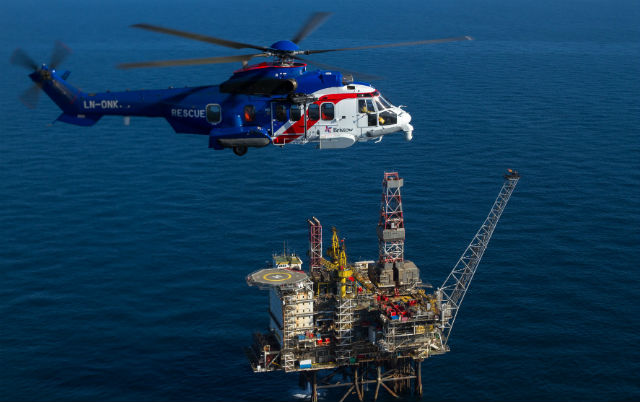Heli Offshore, the new safety body covering the global offshore rotorcraft sector, believes it has made significant progress during its first six months of existence, despite downward cost pressures on its members and turmoil at one of its founder operators.
Gretchen Haskins, chief executive of the London-headquartered body, says she is "delighted" by the take-up in membership.
So far, 44 companies have signed up, the majority of which are operators. These include companies from Australia, Nigeria and Latin America, as well as the major European and North American firms.
All four of the major Western airframe original equipment manufacturers are also in the process of joining, alongside turbine engine producers.
Haskins cites the recent publication by Airbus Helicopters of the first flight-crew operations manual (FCOM) for the H225 as a sign of the manufacturer's buy-in to Heli Offshore's aims.

Airbus Helicopters
"All three of the other OEMs have agreed to work with us to do the same," she says. Initial work towards this goal, covering automation philosophy, should be delivered by year-end, with the full FCOMs completed "within 18 months".
Other work streams also progressing include a health and usage monitoring systems user group, which has been meeting every two weeks to “create a set of best practice principles”. These standards will be presented at Heli Offshore’s first conference, which will be held in Lisbon, Portugal, during May.
“It’s a group of like-minded professionals talking about how they do their job,” Haskins says. “What’s so great is that there are nuggets of best practice from all operators and they are really starting to learn from one another.”
Further activity centres on what Haskins describes as “operational monitoring”, which will see research commissioned to analyse where a pilot looks during a flight. In addition, another study will shortly begin examining helicopter terrain awareness warning systems and “how you get the best crew alerting and response time”.
The offshore transportation sector, like the rest of the oil and gas industry, is facing a difficult financial operating environment due to the low price of crude oil. This has led to concerns that investment in any non-core activity could be reined in by operators.
However, Haskins says she has yet to see any effect on safety or on Heli Offshore’s work. “If anything, it has galvanised us to be more focused,” she says.
There has been turmoil, too, at one of the group’s founding members. Canada’s CHC Helicopter has seen its share price plummet – dropping from around $10 a little over a year ago to $1.27 currently – and former chief executive Bill Amelio has been replaced by former GE Aviation executive Karl Fessenden.
Haskins says CHC’s commitment to Heli Offshore will not change, however, and that Fessenden has already been voted onto its board.
Source: FlightGlobal.com


























